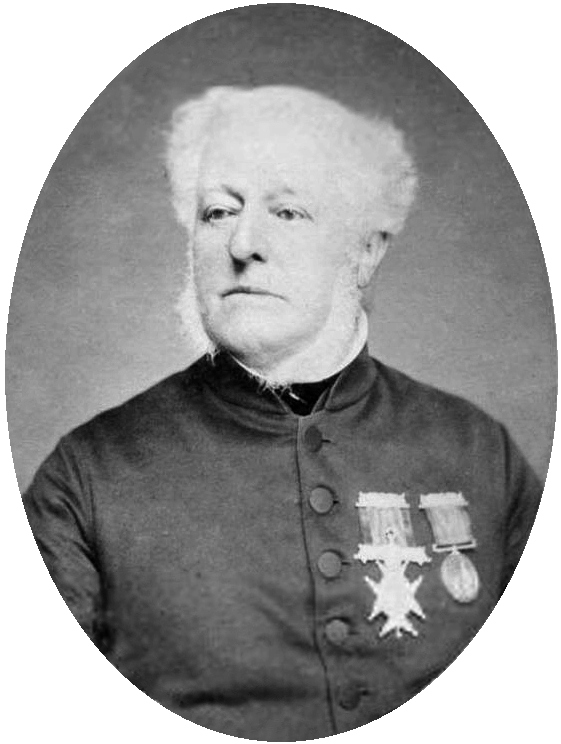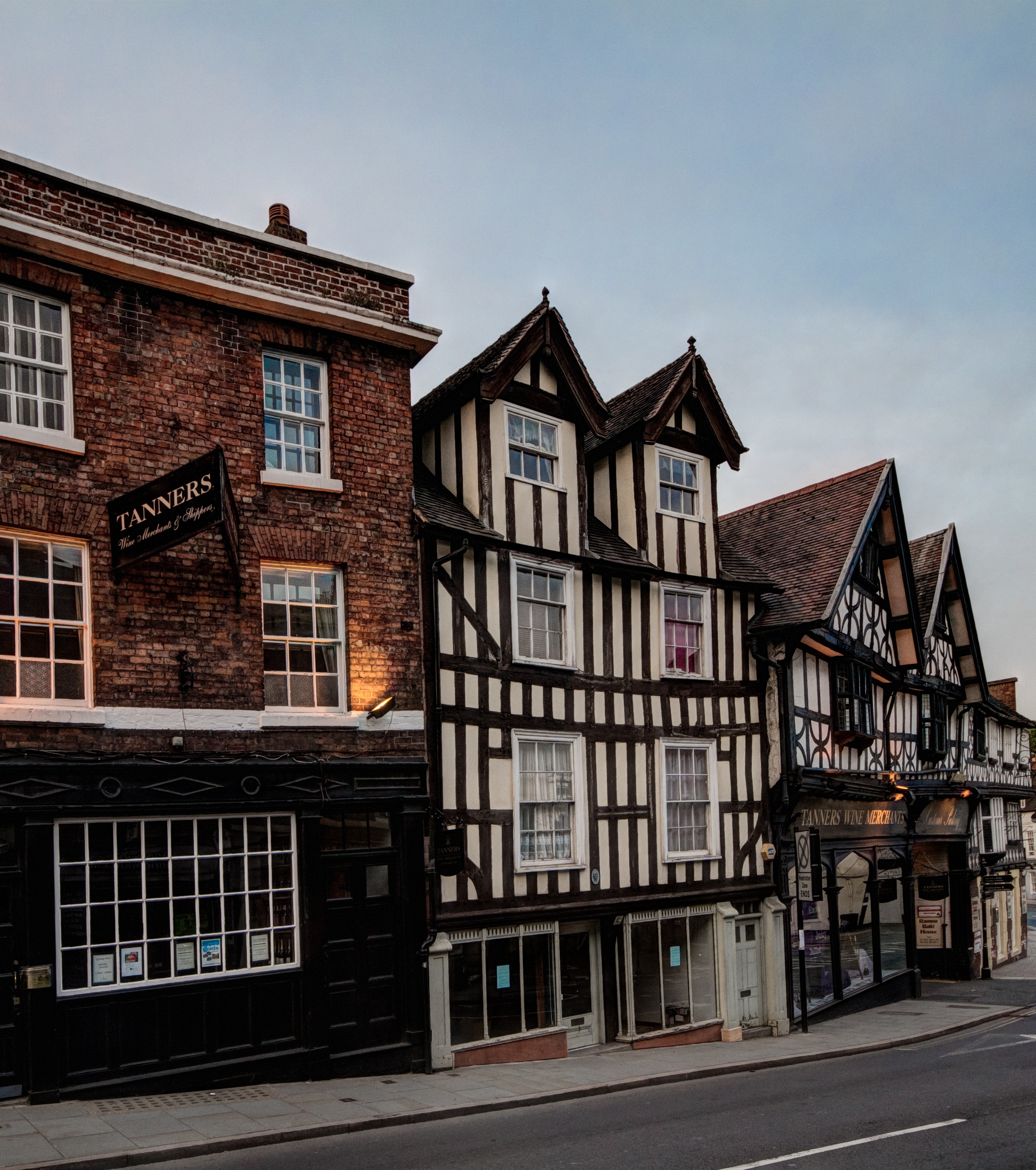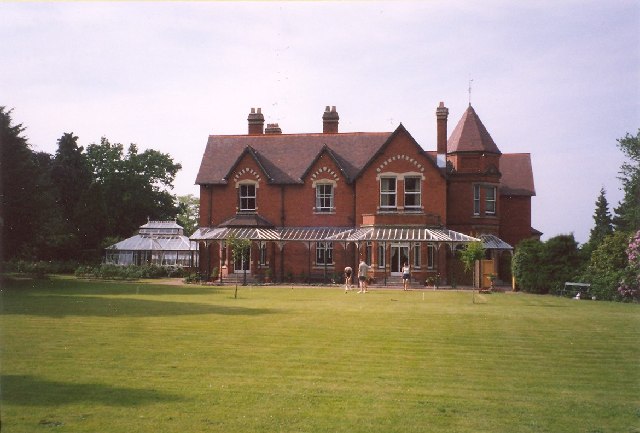|
William Brookes School
William Brookes School is a mixed secondary school and sixth form located in Much Wenlock in the English county of Shropshire. The school is named after William Penny Brookes, a surgeon, magistrate, botanist, and educationalist from Much Wenlock especially known for inspiring the modern Olympic Games with the Wenlock Olympian Games. The school serves a community of small villages as well as the larger town of Broseley. Previously a community school administered by Shropshire Council, William Brookes School converted to academy status in June 2013. However the school continues to coordinate with Shropshire Council for admissions. The school offers GCSEs, BTECs and vocational courses as programmes of study for pupils, while students in the sixth form have the option to study from a range of A-levels. The Edge Arts Centre is also located at William Brookes School. The centre offers cinema, theatre, dance, music, comedy, literature performances for the local community, as well a ... [...More Info...] [...Related Items...] OR: [Wikipedia] [Google] [Baidu] |
Academy (English School)
An academy school in England is a state-funded school which is directly funded by the Department for Education and independent of local authority control. The terms of the arrangements are set out in individual Academy Funding Agreements. Most academies are secondary schools, though slightly more than 25% of primary schools (4,363 as of December 2017) are academies. Academies are self-governing non-profit charitable trusts and may receive additional support from personal or corporate sponsors, either financially or in kind. Academies are inspected and follow the same rules on admissions, special educational needs and exclusions as other state schools and students sit the same national exams. They have more autonomy with the National Curriculum, but do have to ensure that their curriculum is broad and balanced, and that it includes the core subjects of English, maths and science. They must also teach relationships and sex education, and religious education. They are free ... [...More Info...] [...Related Items...] OR: [Wikipedia] [Google] [Baidu] |
Wenlock Olympian Games
The Wenlock Olympian Games, dating from 1850, are a forerunner of the modern Olympic Games. They are organised by the Wenlock Olympian Society (WOS), and are held each year at venues across Shropshire, England, centred on the little market town of Much Wenlock. One of the two mascots for the 2012 Summer Olympics was named Wenlock in honour of the Wenlock Olympian Games. History On 25 February 1850 the Wenlock Agricultural Reading Society (WARS) resolved to establish a class called The Olympian Class – "for the promotion of the moral, physical and intellectual improvement of the inhabitants of the town and neighbourhood of Wenlock and especially of the working classes, by the encouragement of outdoor recreation, and by the award of prizes annually at public meetings for skill in athletic exercise and proficiency in intellectual and industrial attainments". The secretary of the class and driving force behind the Olympian Games was Dr William Penny Brookes who was inspired to cre ... [...More Info...] [...Related Items...] OR: [Wikipedia] [Google] [Baidu] |
Secondary Schools In Shropshire
Secondary may refer to: Science and nature * Secondary emission, of particles ** Secondary electrons, electrons generated as ionization products * The secondary winding, or the electrical or electronic circuit connected to the secondary winding in a transformer * Secondary (chemistry), a term used in organic chemistry to classify various types of compounds * Secondary color, color made from mixing primary colors * Secondary mirror, second mirror element/focusing surface in a reflecting telescope * Secondary craters, often called "secondaries" * Secondary consumer, in ecology * An obsolete name for the Mesozoic in geosciences * Secondary feathers, flight feathers attached to the ulna on the wings of birds Society and culture * Secondary (football), a position in American football and Canadian football * Secondary dominant in music * Secondary education, education which typically takes place after six years of primary education ** Secondary school, the type of school at th ... [...More Info...] [...Related Items...] OR: [Wikipedia] [Google] [Baidu] |
Ben Simons (bobsleigh)
Ben Simons (born 13 November 1986) is a British bobsleigher and former athlete. He qualified for the 2014 Winter Olympics in the 4-man discipline as part of Great Britain 2 team, behind pilot Lamin Deen, performing as the brakeman. Biography Simons was born in 1986 in Broseley, England. As a boy, he was a talented athlete, and he represented Wenlock Olympians at the age of eight. Simons progressed to competitive athletics, joining Telford Athletics club where he initially specialised in the long jump and triple jump. In 2008 he was accepted into University of Wales Institute, Cardiff (UWIC) and joined the University's athletics club. While at Cardiff, he began to concentrate more on his sprinting competing in the 60m and 100m events. He achieved some success as a sprinter, becoming Welsh 60m champion. Simons attended William Brookes School. In 2012 while at UWIC he replied to an advert from British Bobsleigh who were searching for 'future Olympians'. He was accepted into the ... [...More Info...] [...Related Items...] OR: [Wikipedia] [Google] [Baidu] |
Shrewsbury Town F
Shrewsbury ( , also ) is a market town, civil parish, and the county town of Shropshire, England, on the River Severn, north-west of London; at the 2021 census, it had a population of 76,782. The town's name can be pronounced as either 'Shrowsbury' or 'Shroosbury', the correct pronunciation being a matter of longstanding debate. The town centre has a largely unspoilt medieval street plan and over 660 listed buildings, including several examples of timber framing from the 15th and 16th centuries. Shrewsbury Castle, a red sandstone fortification, and Shrewsbury Abbey, a former Benedictine monastery, were founded in 1074 and 1083 respectively by the Norman Earl of Shrewsbury, Roger de Montgomery. The town is the birthplace of Charles Darwin and is where he spent 27 years of his life. east of the Welsh border, Shrewsbury serves as the commercial centre for Shropshire and mid-Wales, with a retail output of over £299 million per year and light industry and distribution centres ... [...More Info...] [...Related Items...] OR: [Wikipedia] [Google] [Baidu] |
Steve Perks
Stephen John Perks (19 April 1963 – 28 April 2021) was an English professional association football, footballer who played as a Goalkeeper (association football), goalkeeper. Early life Born in Bridgnorth, Perks attended William Brookes School in Much Wenlock, leaving at the age of 16. Career After making his debut for the club in the Welsh Cup in February 1982, Perks made 243 appearances in the English Football League, Football League for Shrewsbury Town F.C., Shrewsbury Town, and 292 appearances in all competitions. He later played non-league football for Torquay United F.C., Torquay United, Telford United F.C., Telford United and Stafford Rangers F.C., Stafford Rangers. He also played cricket for Much Wenlock Cricket Club. Later life and death After retiring from football Perks worked as an estate agent in Shrewsbury, before dying on 28 April 2021 aged 58. He was survived by two children. References 1963 births 2021 deaths English men's footballers Shrewsbury Town ... [...More Info...] [...Related Items...] OR: [Wikipedia] [Google] [Baidu] |
Telford
Telford () is a town in the borough of Telford and Wrekin and ceremonial county of Shropshire, England, about east of Shrewsbury, south west of Stafford, north west of Wolverhampton and from Birmingham in the same direction. With an estimated population (for the borough) of 175,271 in 2017 and 142,723 in Telford itself, Telford is the largest town in Shropshire and one of the fastest-growing towns in the United Kingdom. It is named after the civil engineer Thomas Telford, who engineered many road, canal and rail projects in Shropshire. The town was put together in the 1960s and 1970s as a new town on previously industrial and agricultural land and towns. Like other planned towns of the era, Telford was created from the merger of other settlements and towns, most notably the towns of Wellington, Oakengates, Madeley and Dawley. Telford Shopping Centre, a modern shopping mall, was constructed at the new town's geographical centre, along with an extensive Town Park. Th ... [...More Info...] [...Related Items...] OR: [Wikipedia] [Google] [Baidu] |
Ofsted
The Office for Standards in Education, Children's Services and Skills (Ofsted) is a Non-ministerial government department, non-ministerial department of Government of the United Kingdom, His Majesty's government, reporting to Parliament of the United Kingdom, Parliament. Ofsted is responsible for inspecting a range of educational institutions, including state schools and some independent schools, in England. It also inspects childcare, adoption and fostering agencies and initial teacher training, and regulates a range of early years and children's social care services. The Chief Inspector (HMCI) is appointed by an Order in Council and thus becomes an office holder under the Crown. Amanda Spielman has been HMCI ; the Chair of Ofsted has been Christine Ryan: her predecessors include Julius Weinberg and David Hoare. Ofsted is also the colloquial name used in the education sector to refer to an Ofsted Inspection, or an Ofsted Inspection Report. An #Section 5, Ofsted Section 5 Inspe ... [...More Info...] [...Related Items...] OR: [Wikipedia] [Google] [Baidu] |
A-level
The A-Level (Advanced Level) is a subject-based qualification conferred as part of the General Certificate of Education, as well as a school leaving qualification offered by the educational bodies in the United Kingdom and the educational authorities of British Crown dependencies to students completing secondary or pre-university education. They were introduced in England and Wales in 1951 to replace the Higher School Certificate. A number of Commonwealth countries have developed qualifications with the same name as and a similar format to the British A Levels. Obtaining an A Level, or equivalent qualifications, is generally required across the board for university entrance, with universities granting offers based on grades achieved. Particularly in Singapore, its A level examinations have been regarded as being much more challenging than the United Kingdom, with most universities offering lower entry qualifications with regard to grades achieved on a Singaporean A level ce ... [...More Info...] [...Related Items...] OR: [Wikipedia] [Google] [Baidu] |
Business And Technology Education Council
The Business and Technology Education Council (BTEC) is a provider of secondary school leaving qualifications and further education qualifications in England, Wales and Northern Ireland. Whilst the T in BTEC previously stood for Technical, according to the DFE (2016) it now stands for Technology. BTECs originated in 1984 and were awarded by Edexcel from 1996. Their origins lie in the Business Education Council, formed in 1974 to "rationalise and improve the relevance of sub-degree vocational education". It is a wholly owned subsidiary of Pearson plc. BTEC qualifications, especially Level 3, are accepted by all UK universities (in many instances combined with other qualifications such as A Levels) when assessing the suitability of applicants for admission, and many such universities base their conditional admissions offers on a student's predicted BTEC grades. Currently, Imperial College is the only university in Britain not to accept BTECs at all. A report by the Social Marke ... [...More Info...] [...Related Items...] OR: [Wikipedia] [Google] [Baidu] |
General Certificate Of Secondary Education
The General Certificate of Secondary Education (GCSE) is an academic qualification in a particular subject, taken in England, Wales, and Northern Ireland. State schools in Scotland use the Scottish Qualifications Certificate instead. Private schools in Scotland may choose to use GCSEs from England. Each GCSE qualification is offered in a specific school subject (English literature, English language, mathematics, science, history, geography, art and design, design and technology, business studies, classical civilisation, drama, music, foreign languages, etc). The Department for Education has drawn up a list of preferred subjects known as the English Baccalaureate for England on the results in eight GCSEs including English, mathematics, the sciences (physics, chemistry, biology, computer science), history, geography, and an ancient or modern foreign language. Studies for GCSE examinations take place over a period of two or three academic years (depending upon the subject, school ... [...More Info...] [...Related Items...] OR: [Wikipedia] [Google] [Baidu] |
Community School (England And Wales)
A community school in England and Wales is a type of state-funded school in which the local education authority employs the school's staff, is responsible for the school's admissions and owns the school's estate. The formal use of this name to describe a school derives from the School Standards and Framework Act 1998.School Standards and Framework Act 1998 Her Majesty's Stationery Office. Board School |



